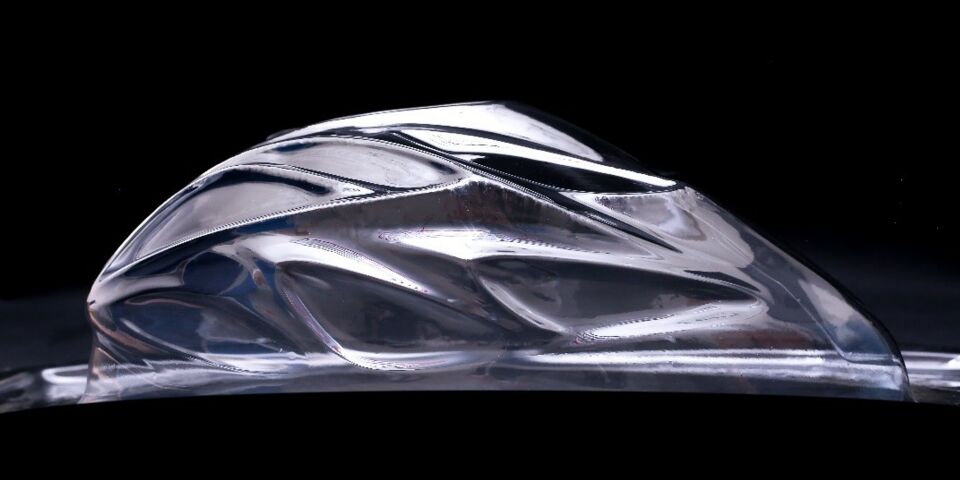Latest: Röhm, supplier of special films under the EUROPLEX® brand, is also developing plastic films using renewable raw materials. New product under development, provisional name EUROPLEX®
Film LJ 21123/123, is a polylactic acid (PLA) based
clear, high gloss and stable films. Unlike many other PLA-based films on the market, this film is not biaxially stretched, so it can be thermoformed.
Films made from PLA are more environmentally friendly than petroleum-based films due to significantly lower CO2 emissions from raw material production. Therefore, PLA films help reduce the carbon footprint of the final product.
Sustainability is an integral part of ROHM’s global business strategy, with the company aiming to achieve climate-neutral production by 2050. The focus is not only on the development and launch of new sustainable products and technologies, but also on the decarbonisation of raw materials.
“We are taking responsibility for our climate, society and our limited natural resources,” says ROHM Chief Operating Officer (COO) Hans-Peter Hauck.
Eco-friendly alternatives
EUROPLEX® Film LJ 21123/123 consists of certified compostable PLA to ASTM D6400 American Standard and EN
13432 European Standard for Industrial Composting Requirements. PLA films are many times less durable than petroleum-based films if not handled properly. In addition, the PLA film does not release toxic substances when it decomposes.
EUROPLEX® Film LJ 21123/123 Product Features
Bio-based and industrially compostable
Thermoformable at 55°C
High transparency, light transmittance above 92%
High tensile strength and good flexibility
Can be punched and cut
can be printed
On request, film samples with a thickness of 53 μm to 500 μm and a width of 200 mm are available.
Applicability
EUROPLEX® Film LJ
21123/123 has a wide range of properties that make it ideal for a variety of interior applications such as high-quality packaging for food and non-food products, as well as products such as decorative film graphic panels for in-mold decorative processes or printing. “Our experience with film extrusion allows us to produce PLA films with high optical quality. We are excited to discuss their specific requirements for their application with interested parties,” said Herbert, Head of Film and Extrusion Development
Groothues stressed.
Approved for food contact
This bio-based film is also suitable for tightly regulated food packaging – as it complies with EU (EU Regulation 10/2011), US (FDA 21 CFR) and Chinese requirements for plastics in contact with food (GB
9685-2016). Possible applications include viewing windows on cardboard packaging or thermoformed packaging where aesthetics and quality are critical.
Raw materials from certified sources
The raw material for the production of EUROPLEX® Film LJ 21123/123 comes from non-GMO sugar cane.
Films made from PLA are more environmentally friendly than petroleum-based films due to significantly lower CO2 emissions from raw material production. Therefore, PLA films help reduce the carbon footprint of the final product.
“Sustainability is an integral part of ROHM’s global business strategy, and the company aims to achieve
to achieve climate-neutral production in 2018. The focus is not only on the development and launch of new sustainable products and technologies, but also on the decarbonisation of raw materials,” says ROHM COO Hans-Peter Hauck.

About Roma
ROHM is one of the world’s leading producers of methacrylates with 15 production sites and approximately 3,500
employees. With branches in Germany, China, USA, Russia and South Africa, over 80 years of experience in methacrylate chemistry and a strong technology platform. Our well-known brands include PLEXIGLAS®, Acrylite®, MERACRYLTM, DEGALAN®
And DEGAROUTE® with Gelu®, products are widely used in coatings, automotive, electronics, lighting, construction and medical and health industries.

